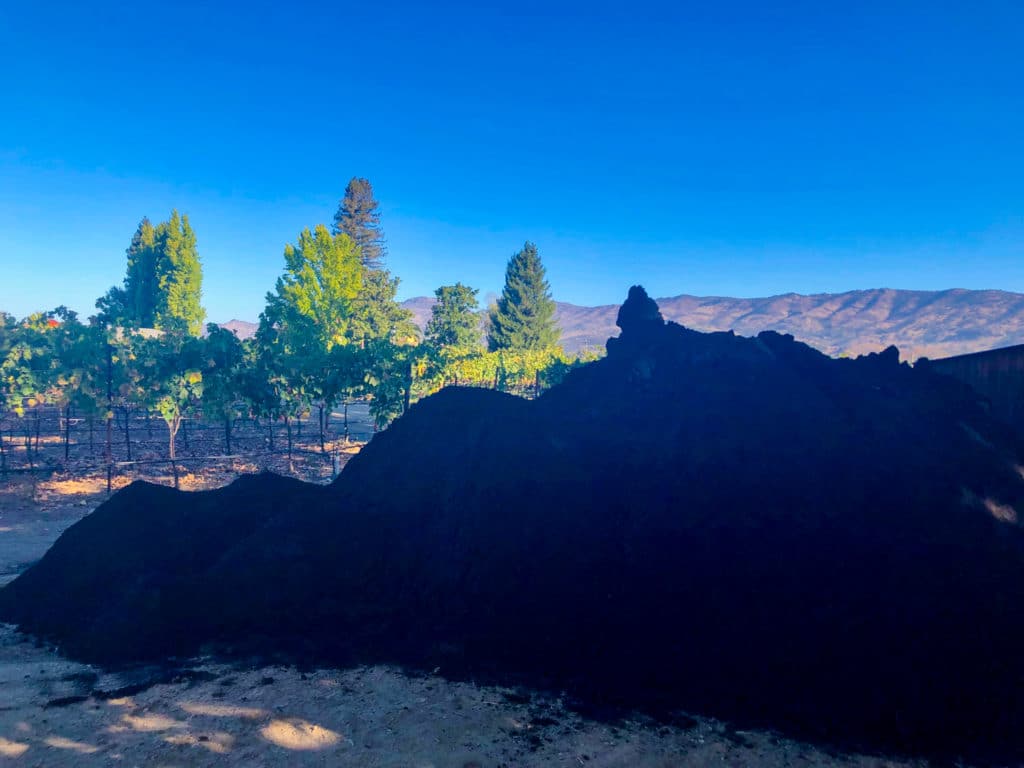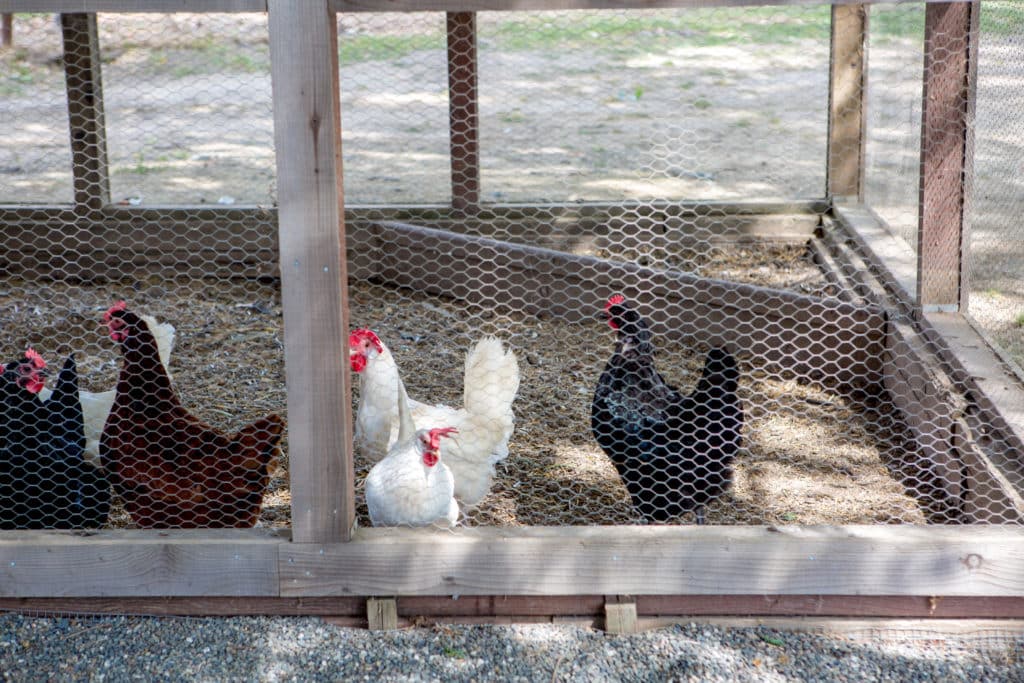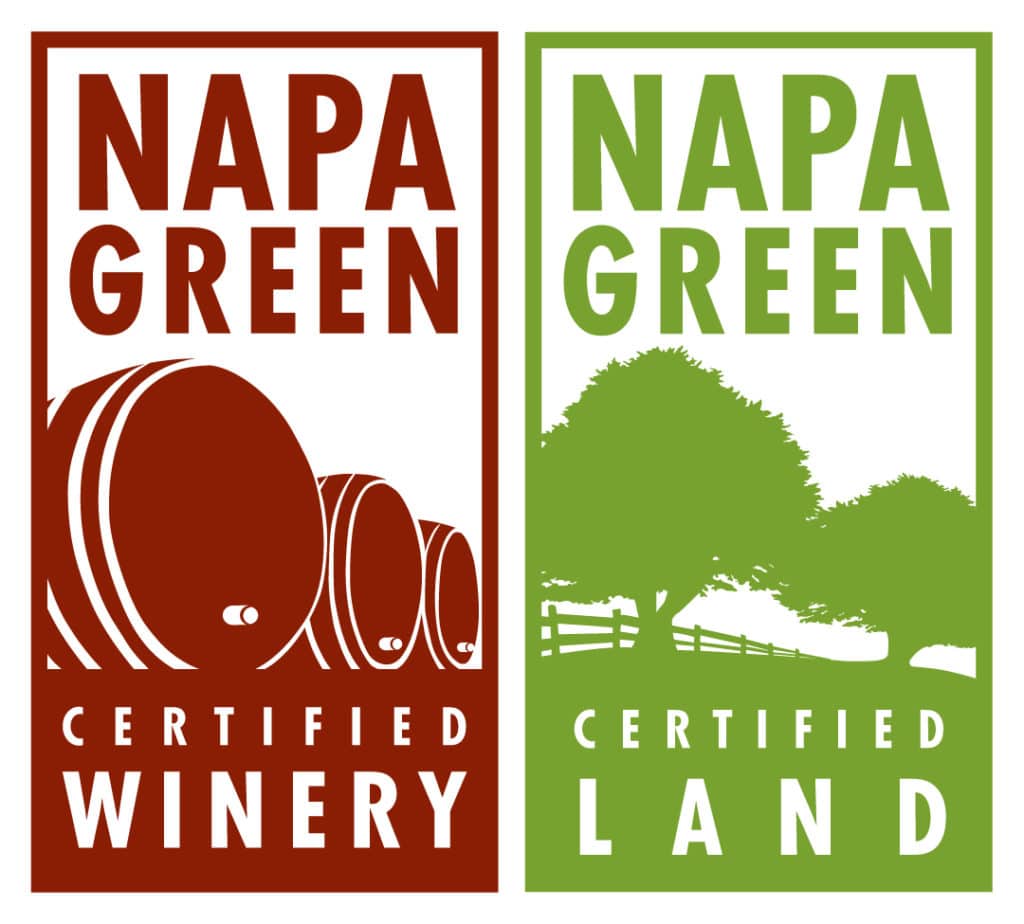
Composting—what is all the fuss about?! Let us fill you in on our dirty (not so little) secret. We have been composting long before any certifications were handed out because we have seen the incredible benefits to our environment and our wines!
Where does our composting story begin? Growing up helping his Dad (Aldo) in the vineyard, Bob recalls not having money for compost; however, with hundreds of chickens on the ranch you can imagine all the readymade manure-based product! Bob says, “You guessed it, that was our job to collect it and spread it around the vineyard.” And so, the love story began…

What is compost? Compost is decayed material used to fertilize plants, and in our case vineyards! At Robert Biale Vineyards we use two types of compost—plant-based and manure-based. Each vineyard site is different, thus the compost we use is dependent on what the soil needs. If it is a weaker soil lacking more nutrients, then we use manure-based compost, as it packs more of a punch and is nutrient-dense. If the soils just need a little uplifting, then plant-based it is! Bob knows our vineyards like the back of his hand, so it is easy for him to visually see if a vineyard is struggling or if the soil is already fertile. To double check we also take tissue samples of the vines every year around bloom/veraison to check in on our vineyard sites and make sure we can properly treat the vines after harvest.
Thankfully, the soils of the Oak Knoll District are rich in nutrients and only need a slight “pick me up” each year, which means happy customers in the tasting room right now. Wine tasting and manure—we think not!

Let’s get down to the “nitty gritty”. What are the benefits of composting? The most important aspect is to build the organic matter in the soil. The more organic matter, the more water holding capacity. This means, we save on water (which helps the environment), and less water means more concentrated fruit flavors in the wine.
The second benefit to building organic matter, is that it helps to keep the soil in balance. Not too much of one thing or the other, which in turn allows the vines to uptake the natural nutrients already in the soil. When a vine is in complete balance the skins of the berries are thicker. Thicker skins directly affect the color and flavor of the wine.
There you have it: our dirty secret to making delicious wines!